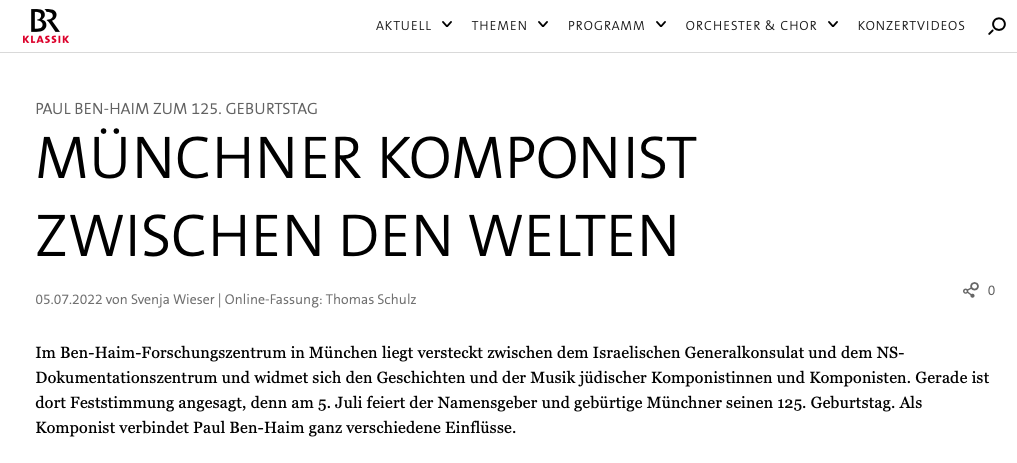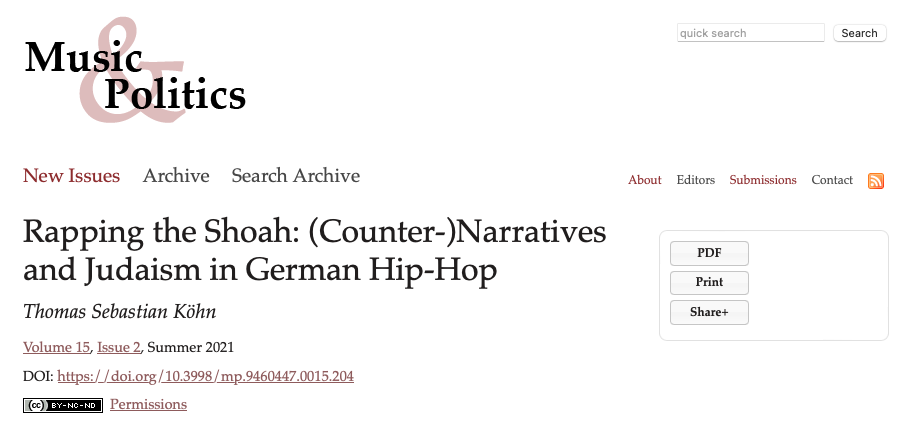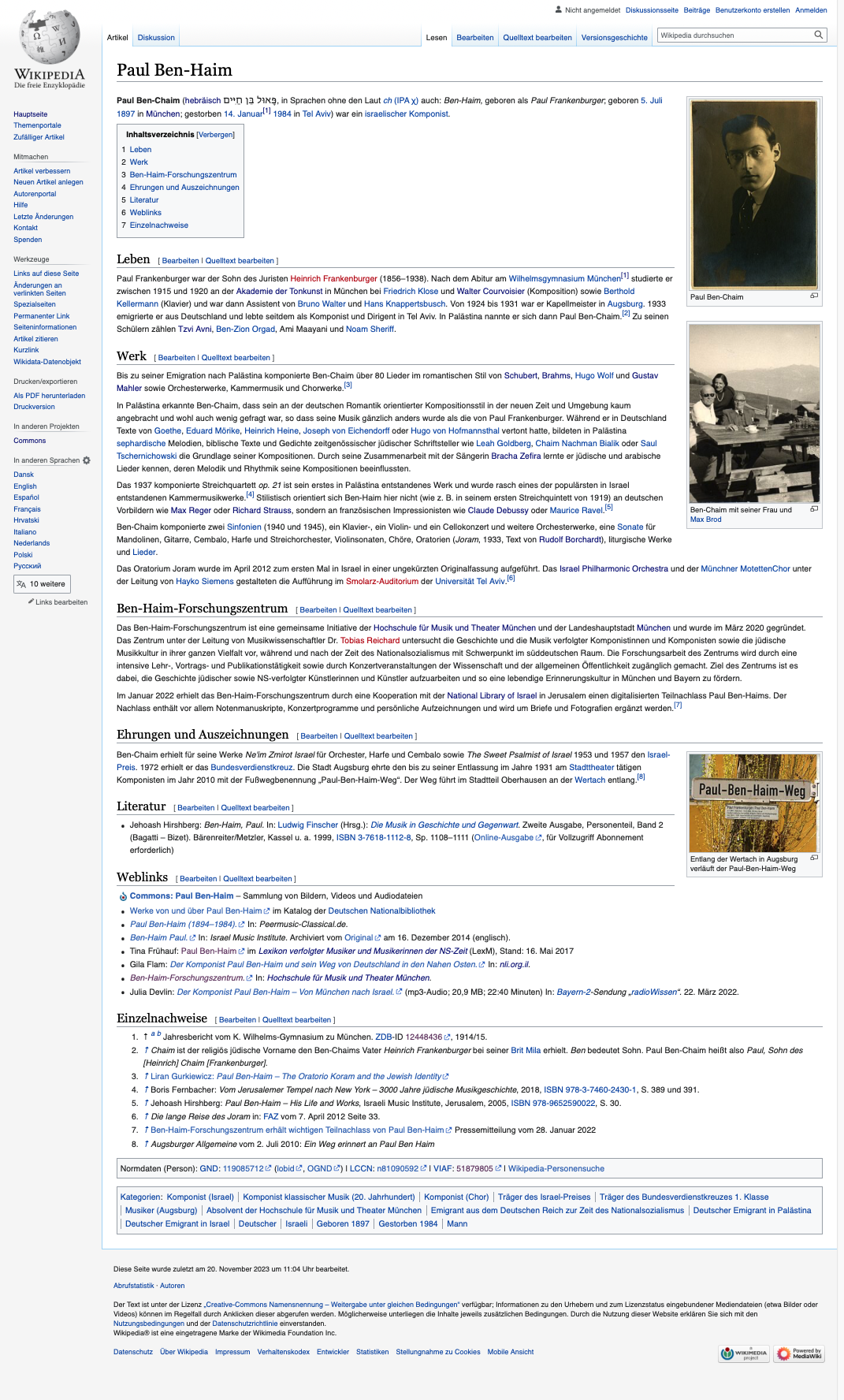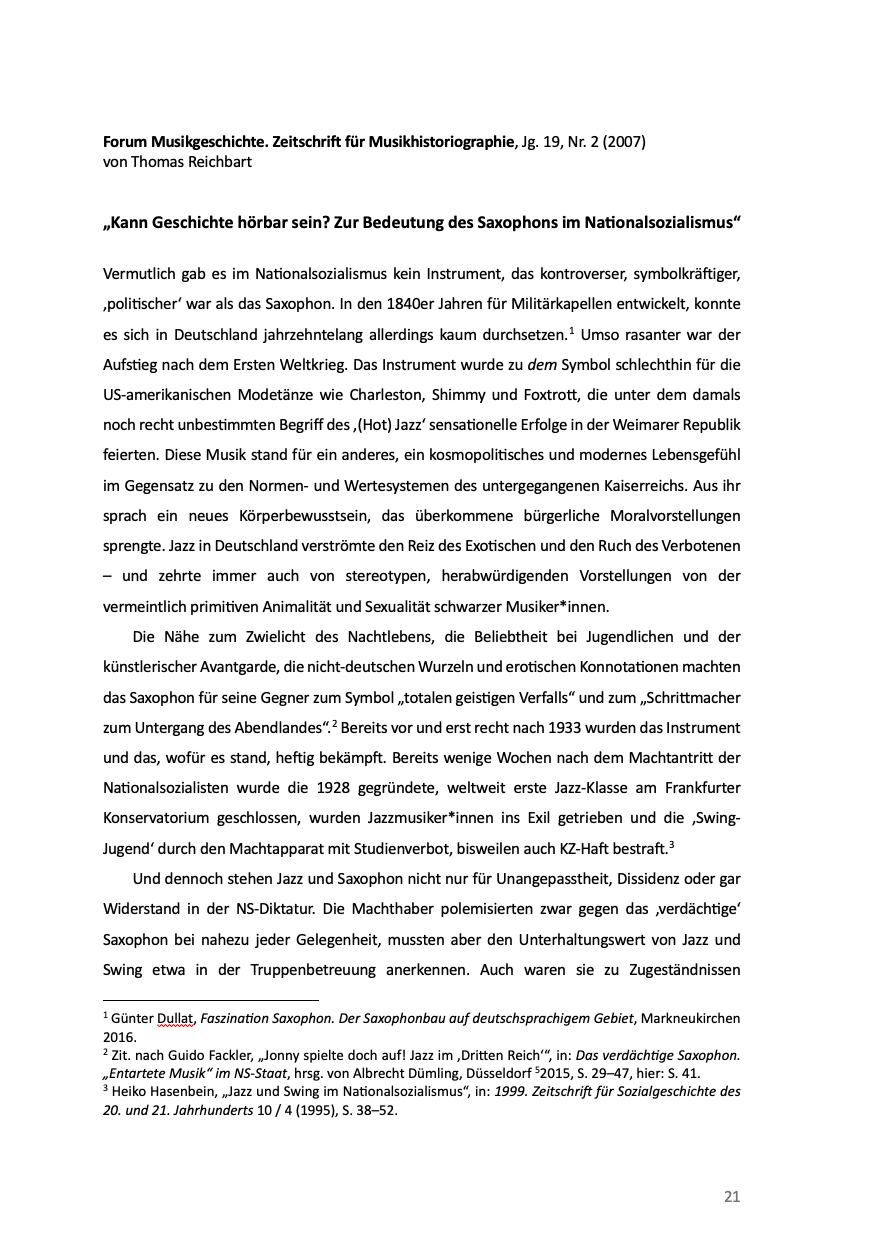Contents
Musicology as a university discipline emerged in German-speaking regions in the second half of the nineteenth century. The field has since further developed and specialized substantially. Rather than musicology (in the singular), it is thus more fitting to speak of musicologies (in the plural).
Here are three (possible) definitions for musicology:
Musikwissenschaft ist die Wissenschaft von der Musik.
Source: Michele Calella, “Orientierung am Studienbeginn,” in Musikwissenschaft studieren: arbeitstechnische und methodische Grundlagen, ed. Kordula Knaus and Andrea Karoline Zedler, 2nd updated edition (Munich: Herbert Utz Verlag, 2019), 15–25, at 15.
[Die Musikwissenschaft hat] das Ziel, musikalische Erscheinungsformen sowie die Zusammenhänge, in denen sie stehen, zu erkennen und den gegenüber bereits bestehender Erkenntnis gewonnenen Erkenntnisfortschritt in sprachlicher Form zu äußern.
Source: Nicole Schwindt-Gross, Musikwissenschaftliches Arbeiten. Hilfsmittel – Techniken – Aufgaben, 5th ed. (Kassel: Bärenreiter Verlag, 2003), 12.
Die Musikwissenschaft [...] ist eine akademische Disziplin, die der Erforschung musikalischer Repertoires und darauf bezogener Praktiken und Diskurse sowie der Reflexion über Musik in der Vielfalt ihrer historischen, kulturellen und sozialen Erscheinungsformen gewidmet ist, aber auch die akustischen, biologischen und psychologischen Grundlagen der Musikproduktion und -rezeption berücksichtigt.
Source: Melanie Wald-Fuhrmann, “Musikwissenschaft,” in MGG Online, ed. Laurenz Lütteken (New York, Kassel, Stuttgart, 2016, published online June 2022), https://www-1mgg-2online-1com-16dgawa8h3dc7.emedia1.bsb-muenchen.de/mgg/stable/406845.)
What are the similarities and differences?
Although very different views on the subject matter and methods of musicology exist, a common goal can be formulated for musicology (which holds true for any other scholarly discipline): to make true statements about a specific subject and to fully document and conclusively justify how these statements were arrived at. Findings that are obtained using scholarly working techniques and claim to be true (“scholarly knowledge”) are therefore required to meet particularly high quality standards. This entails the following four criteria (after Rösing & Petersen 2000, 26–37):
- Objectivity/Intersubjectivity: Scholarly knowledge should be devoid of subjective views, value judgments and convictions (opinions) as far as possible. However, complete objectivity can never be achieved, as academic texts are always written by individuals (subjects of knowledge) with individual tastes and preferences. Our own assumptions must therefore always be critically questioned and our own thoughts must be clearly declared as such so that they can be recognized accordingly by other subjects of knowledge (intersubjectivity).
- Verifiability: The individual steps taken to arrive at the scholarly findings (methods, sources, thought processes) must be disclosed and be comprehensible to everyone (see Scholarly Documentation). Anyone who poses the same research question, uses the same sources and applies the same methods should arrive at the same result. The findings must also be permanently secured (usually in textual form) so that they remain verifiable in the future.
- Consistency: It follows from the truth of scholarly claims that two contradictory statements cannot be true at the same time. If there are two contradictory views on a topic (e.g. when analyzing the form of a musical work), we must justify why one view is preferable to the other or why both views may need to be corrected.
- Discursivity: Scholarship does not only involve examining primary sources, but also studying what other scholars have already published on the subject (see Secondary Literature.) This research discourse must always be included and discussed. This is to ensure that research work is not unnecessarily duplicated, the aim being to gain new insights.
All working techniques explained in this handbook serve the goal of fulfilling the criteria of scholarly rigor.
Identify possible markers of scholarly rigor in the following – fictitious – text (the criterion of consistency does not need to be checked here)!
Is the text in question scholarly literature? Why (not)?

Svenja Wieser and Thomas Schulz, "Münchner Komponist zwischen den Welten," BR-Klassik, 5.7.2022, https://www.br-klassik.de/aktuell/paul-ben-haim-komponist-jubilaeum-geburtstag-125-jahre-100.html (accessed: 22.11.2023)

Thomas Sebastian Köhn, "Rapping the Shoah: (Counter-)Narratives and Judaism in German Hip-Hop," Music & Politics 15, no. 2 (2021), https://doi.org/10.3998/mp.9460447.0015.204 (accessed: 22.11.2023)

Source: Wikipedia
Introductions to musicology:
- Matthew Gardner and Sara Springfeld, Musikwissenschaftliches Arbeiten: eine Einführung, 2nd edition (Kassel: Bärenreiter, 2018).
- Kordula Knaus and Andrea Karoline Zedler, eds., Musikwissenschaft studieren: arbeitstechnische und methodische Grundlagen, 2nd updated edition (Munich: Herbert Utz Verlag, 2019).
- Helmut Rösing and Peter Petersen, Orientierung Musikwissenschaft (Reinbek bei Hamburg: Rowohlt-Taschenbuch-Verlag, 2000).
- David Beard and Kenneth Gloag, Musicology: The Key Concepts, 2nd edition (New York: Routledge, 2016).
- Aaron Williamon et al., Performing Music Research: Methods in Music Education, Psychology, and Performance Science (Oxford: Oxford University Press, 2021).
- J. P. E. Harper-Scott and Jim Samson, eds.,* An Introduction to Music Studies* (Cambridge: Cambridge University Press, 2009).
- Tim Crawford and Lorna Gibson, eds., Modern Methods for Musicology: Prospects, Proposals, and Realities (Farnham: Ashgate, 2009).
- Laurie J. Sampsel, Music Research: A Handbook (New York: Oxford University Press, 2009).
General academic working techniques:
- Norbert Franck and Joachim Stary, eds., Die Technik Wissenschaftlichen Arbeitens, 17th updated edition (Paderborn: Schöningh, 2013).


